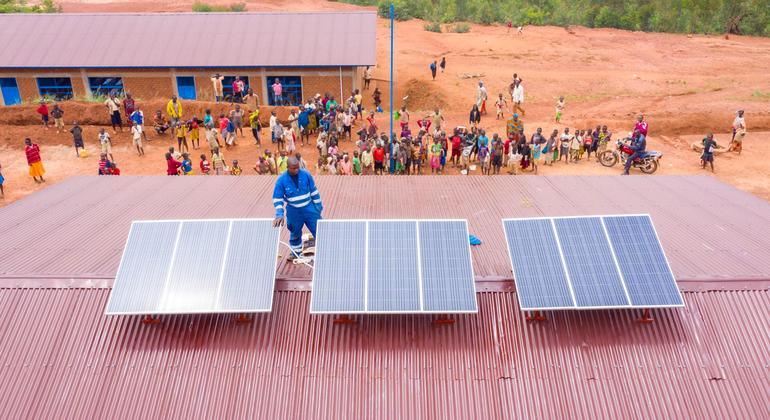Although the basic energy access rate has increased since 2022, the current rate is insufficient to achieve universal access by 2030, one of the UN sustainable development objectives (SDG), according to a report published by WHO and partners this Wednesday.
The report highlights the role of profitable distributed renewable energies – a combination of mini -network and network solar systems – in the acceleration of energy access, in particular because the populations that remain unconnected live mainly in distant, low -income and fragile areas.
Regional disparities
“Despite progress in certain parts of the world, the expansion of electricity and access to clean cooking remains disappointing, in particular in Africa,” said Fatih Birol, executive director of the International Energy Agency (AIE), because 85% of the world’s population without access to electricity lies in sub -Saharan Africa.
In the region, the deployment of renewable energies quickly widened; However, on average, it remains limited to 40 watts of installed capacity per capita – only one eighth of the average in other developing countries.
Clean kitchen
While regional disparities persist, around 1.5 billion people residing in rural areas still do not have access to clean cooking, while more than two billion people remain dependent on pollution and dangerous fuels such as firewood and charcoal for their cooking needs.
However, the use of clean network technologies, such as domestic biogas factories and mini-scrubs that allow electrical cooking, can offer solutions that reduce health impacts caused by household air pollution.
“The same pollutants who poison our planet also poison people, contributing to millions of deaths each year by cardiovascular and respiratory diseases, especially among the most vulnerable, including women and children,” said Tedros Ghebreyesus, who is managing director.
Lack of funding
The report has identified sufficient and affordable lack of funding as a key reason for regional inequalities and slow progress.
While international public financial flows to developing countries with clean energy have increased since 2022, the developing world received much less flow in 2023 than in 2016.
“This year’s report shows that this is the time to come together to rely on existing achievements and increase our efforts,” said Stefan Schweinfest, director of the United Nations Statistics Division, while the report called for strengthening international cooperation between the public and private sectors to increase financial support for developing countries, in particular in sub -Saharan Africa.




